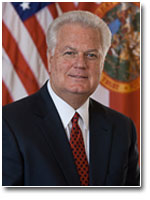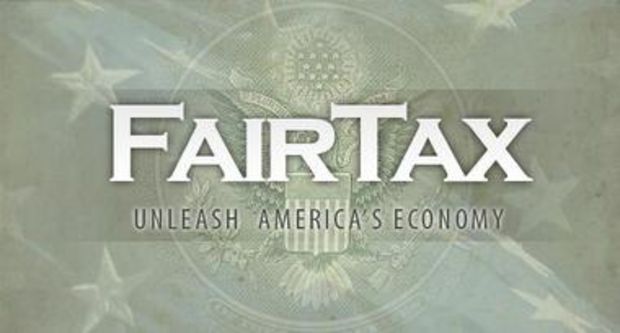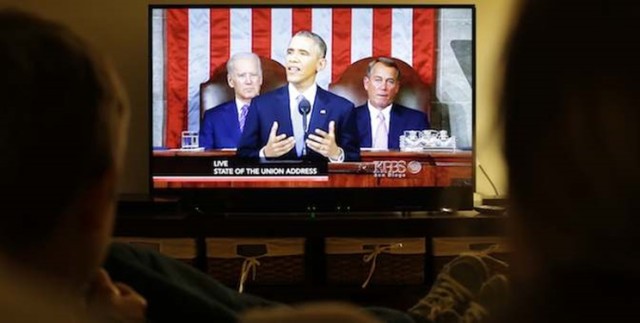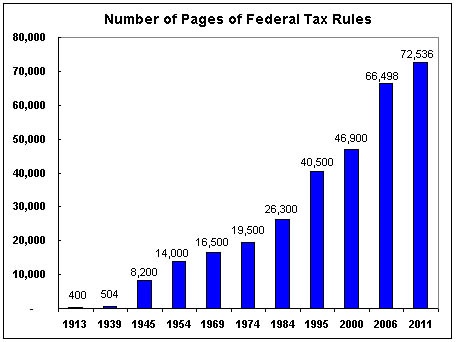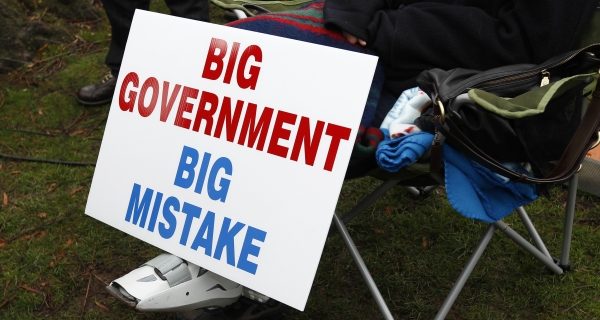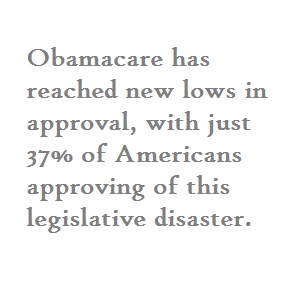Mentioned below is an article regarding the tension in Carlsbad, New Mexico as a County Sheriff stood between a resident in his county, and the Federal Marshall Service! Sheriff Scott London had a nationally known and respected Constitutional Lawyer spend a day teaching his department the reality of the US Constitution, especially the protection of private property rights from intrusion by an unchecked federal government and it’s agencies and departments. KrisAnne Hall is a former State’s Attorney with many years of prosecution experience. Between returning to school to study Constitutional Law and studying on her own, KrisAnne has become recognized nationally as a subject-matter expert. Her books and DVDs will attest to that statement.
I have been most fortunate to have met KrisAnne on a couple of occasions, and was proud to host her for a full-morning seminar at the Arizona State Capitol this past January. Sheriff London of Eddy County, New Mexico has participated in one of KrisAnne’s eye-popping, quick note taking, head spinning, and solid constitutional law and facts training. The Arizona Legislators, law enforcement officers, and various elected officials from across the State of Arizona took more notes than they have since college, or so they reported. A month later and I have about a dozen requests from law makers to “bring KrisAnne back to Arizona!” I am quite certain Sheriff London, and his department, wants a return seminar, also.
Sheriff London decided to act on his authority and rights as the Constitutionally-elected Chief Law Enforcement Officer of Eddy County, New Mexico. This authority gives the Sheriff absolute authority to stand against federal intervention in his county, and neither can a Board of Supervisors or County Commissioners, a State Legislature, the Governor, or even Federal Departments order the Sheriff. The people of Eddy County, New Mexico have the authority to cause the sheriff to be turned-out of office, even recalled if the Sheriff is abusing his authority.
The 3,200 Sheriffs across America are accountable to the people!
The Framers of our Constitution especially created this document with that provision in mind. As a guard against runaway tyranny and heavy handed federal intrusion, our Forefathers created the Office of the Sheriff to be a watchdog for breaches of sovereignty, and a protector of people’s rights and constitutional gifts.
Sheriff London has been informed that much help is available to him and his department if he so chooses. The Sheriff is not running for reelection, so statements that he is grandstanding are typical grandstanding in their own verbiage. A single sheriff in an out-of-the-way county in the Southwest stood on his U.S. Constitutional authority and protected a citizen, and a citizen’s private property. Hooray for this Sheriff of Eddy County, New Mexico! Hooray for those sheriffs across this land who do likewise. I am afraid they will be put to the test far more in coming months.
The Sheriff is far more than a law enforcement professional, he/she are truly our last line of defense against tyranny and runaway federal intrusion.
EXCLUSIVE: Sheriff Stands Up to IRS, Cancels Land Sale
By: Priscilla Jones Feb 7, 2015
The first Republican elected sheriff in Eddy County, New Mexico, became the first sheriff in 25 years to stand up to the IRS. He physically stood at the gate of a troubled citizen’s property while US Marshals threatened his arrest. The landowner filed an appeal with the court and expects his case to receive due process before his land is publicly sold. The sheriff agrees. The judge does not.
Sheriff Scott London says he learned more about the Constitution in the year he spent campaigning for his job than in all of his years of schooling combined.
WASHINGTON, February 7, 2015—New Mexico’s Eddy County Sheriff Scott London notified the Internal Revenue Service (IRS) via letter that the sale of county resident Kent Carter’s property is canceled until Carter receives due process of law and his appeal is heard. The certified letter dated February 4 received an immediate response from the Undersecretary of the Treasury’s office. According to the Treasury’s website, however, the public auction is still slated for February 19.
“Many officers have stood up over the years for the rights of citizens being victimized by the federal government,” said Sheriff Mack, founder of the Constitutional Sheriffs and Peace Officers Association, “But Sheriff London is the first one to stand up to the IRS since the early 1990s.” Mack said, “His actions show courage and humility. London is setting a good example for the rest of our sheriffs.”
Approximately ten days before Christmas, U.S. Marshals broke in the door of Carter’s rental property with their guns drawn. The tenant was a young mother with a new baby—home alone while her husband was at work. Sheriff London was called to the property to intervene. He advised the Marshals that Carter’s case was in appeal and he deserved due process. They threatened to arrest London, but he stood his ground and they backed off.
Carter has battled the IRS for decades over taxes on the earnings of his modest construction business. One court document listed his debt at $145,000, a figure Carter says an assessing agent “pulled out of thin air.” Every time he challenged them, his bill would shoot up a few hundred thousand dollars. His legal complaints state that the IRS failed to adhere to its own tax code, did not use proper accounting methods, and that the collection activity was unlawful because no notices of deficiency were given. Carter says his private and confidential information, including his social security number, was filed in public records and given to third parties. The IRS countered that it can publish and disperse the private information of Americans if it is trying to collect their money or property. A judge agreed.
Carter says the IRS is currently claiming he owes $890,000, a figure that “doubled with the stroke of a pen.”
The Taxation & Revenue Department ordered Carter to cease “engaging in business in New Mexico” until his arbitrary tax debt was paid. Carter appealed this injunction on the grounds that it was both unconstitutional and vague, as it deprived him of his right to make a living and also prohibited him from, “carrying on or causing to be carried on any activity with the purpose of direct or indirect benefit.”
“The IRS fabricates evidence against citizens by pulling numbers out of a hat and adding fees,” said Mack, “They wear people down emotionally and financially until they can’t take it anymore. No citizen should ever have to fight the IRS for decades in order to keep his land.”
“The IRS is a lie. The income tax is a lie,” said Carter. “Why should they be able to take anything? They’re worse than the mafia.”
The Carter properties have liens placed against them. A locksmith was instructed to change the locks. The IRS authorized the United States Marshal Service to arrest/evict anyone found on the premises. London, however, physically stood in front of Carter’s gate until the Marshals backed down. A public auction on the front steps of the Eddy County Courthouse is scheduled, but the local county sheriff—trained in the Constitution—resisted.
Carter voluntarily vacated his property and relocated his mobile home to an undisclosed location. “I chose to leave to keep it from escalating to something ugly—like Ruby Ridge, Idaho,” he said. Carter said he advised the Marshals and IRS Agents who publicly claimed he had armed friends on his land, “If there is going to be any violence, it is going to be you who starts it.”
Carter says 100% of his Social Security benefits is seized each month by the IRS, in addition to $2,800 the agency drained from his bank account. Legally, he says, the IRS can take no more than 15% of Social Security benefits.
Mack says banking institutions quiver when faced with the IRS’ gestapo tactics and generally hand over customers’ personal banking information, including access to accounts, without requiring a warrant or even any documentation. He encourages county sheriffs to brief every bank in their jurisdiction to refer inquiries from IRS agents to them.
Sheriff Mack is calling for the IRS to start following the law, including no “random” audits without probable cause, as they violate the Fourth Amendment. He asks them to stop committing crimes and rewarding IRS employees with bonuses for cheating on their personal taxes. “I agree with Senator Ted Cruz and others who say the IRS should be abolished,” said Mack. “It’s time they got off the backs of the American people.”
Carter says he prays daily for wisdom, and that he is surviving to be able to look into his grandchildren’s eyes and tell them he fought for their future and for America.
London is the first Republican to ever be elected sheriff in Eddy County. He distributes Bibles on behalf of Gideon International and met his wife in choir practice.
 About Priscilla Jones
About Priscilla Jones
Priscilla Jones is a business writer and communications strategist based in the nation’s capitals—Austin and D.C. Shedding light on incidences of abuse by overreaching government entities is her passion. Priscilla pens political humor pieces, a few of which are pure satire. When authentic investigative journalism is required, however, she delivers. Her beats are the criminal “justice” system, the security industry, and gun + private property rights. If you have a lead, please contact her. She is PatriotWriter on Twitter.




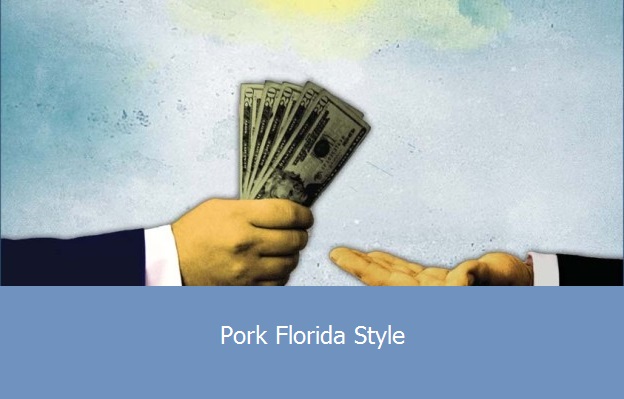

 The explicit 2 percent ACA surcharge at Buffalo Wild Wings may or may not have been intended as permanent. The restaurant chain’s executives have already cancelled the policy after customers reacted negatively. But there is a lesson to be learned from the surcharge. Government programs have the superficial appearance of being free, but they never are.
The explicit 2 percent ACA surcharge at Buffalo Wild Wings may or may not have been intended as permanent. The restaurant chain’s executives have already cancelled the policy after customers reacted negatively. But there is a lesson to be learned from the surcharge. Government programs have the superficial appearance of being free, but they never are.

